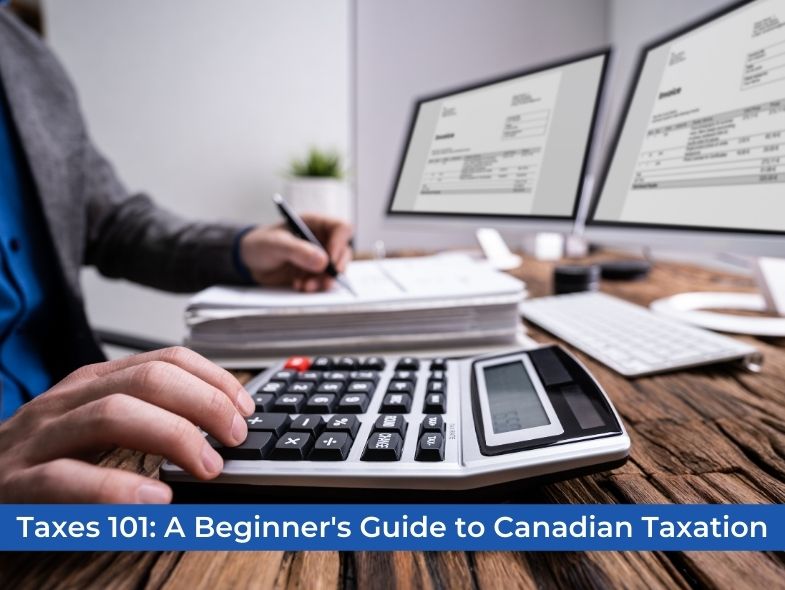Adulting comes from different angles, and if you are starting a new career, it is crucial to know the basics regarding Canadian taxation. The tax system in Canada is complex and confusing. It is a daunting task, especially for someone new to taxes.
Knowing the basics when it comes to taxation is crucial to avoid mistakes and any potential problems in the future.
What Taxes Will You be Expected to Pay?
- Income Tax. Income tax is collected by the federal government and most provincial/territorial governments. From the word itself, it is the tax you pay on your income.
- Sales Tax. This tax is when you buy goods or services, which can vary by province or territory. Goods and Services Tax (GST) and Provincial Sales Tax (PST) are the two most common types of sales tax.
- Property Tax. This tax is collected by your local municipality. This is a tax you pay on the value of your property.
How Do You File Taxes?
Every year, you are required to file your taxes. The deadline is on April 30th of the following year. If you are self-employed, you have until June 15th to file. Below are the steps to file your taxes:
-
Gather your Documents.
– Ensure you gather all the necessary documents before filing your taxes. These documents include your T4 (or other income slips), expense receipts, and any other relevant tax forms.
-
Choose a method of filing.
– You can file your tax in various ways, including by mail, phone, or online. The most commonly used way of filing is using Canada Revenue Agency’s (CRA) website online.
-
Complete your tax return.
– This involves entering your income, deductions, and credits into the appropriate fields on the form.
-
Submit your tax return.
– After you’ve completed your tax return, you’ll need to submit it to the CRA. If you’re filing by mail, include all the necessary documents and ensure your return is postmarked by the deadline.
Tips to Make Filing Your Taxes Easier:
Tax season is stressful, so making filing taxes easier is what Canadians want. You can do various things to make tax season an easy season.
- It is essential to track your expenses throughout the year so that when tax season comes, you won’t have to deal with the stressful collection of your expenses.
- Consider using tax software; it will help you complete your tax return quickly and accurately.
- Do not cram. When you do last-minute filing, the more it will be stressful. Earlier filing can lead to a smoother transaction.
- Seek help from a professional or, better yet, contact CRA if you are confused. It is better to seek help than cause more problems for yourself.
Tax Deductions and Credits Available
It is also essential to be aware of the tax deductions and credits available to Canadian taxpayers. These will help reduce your overall tax liability and put more money back in your pocket.
-
RRSP Contributions
One of the best ways to reduce your taxable income is by contributing to a Registered Retirement Savings Plan (RRSP). Contributions to an RRSP are deductible from your income, which can help lower your tax bill. You can contribute up to 18% of your previous year’s income to your RRSP, up to a maximum of $27,830 in 2022.
-
Child Care Expenses
You can claim childcare expenses on your tax return if you have children under 16 years old. These expenses may include daycare, after-school programs, summer camps, etc. You can claim up to $8,000 per child under the age of 7 and up to $5,000 per child aged seven and sixteen.
-
Medical Expenses
If you have significant medical expenses, you can claim them on your tax return. Medical expenses like prescription medication, dental work, and vision care. You can claim medical expenses that exceed 3% of your net income, or $2,397 in 2022, whichever is less.
-
Charitable donations
If you make donations to a registered charity, you may be able to claim them as a tax deduction. You can claim up to 75% of your net income in charitable donations, although any excess donations can be carried forward for up to five years.
-
Home Office Expenses
You may be able to claim certain home office expenses on your tax return if you are working from home, including rent, utilities, and office supplies. Your home must be the principal place of your business, and you must use it exclusively for work purposes to be eligible.
Conclusion:
Understanding the basics of Canadian taxation is important for all taxpayers. Knowing the top tax deductions and credits available can help reduce tax liability and keep more money in your pocket. Be sure to consult a tax professional to see which deductions and credits you’re eligible for and how to claim them properly.




